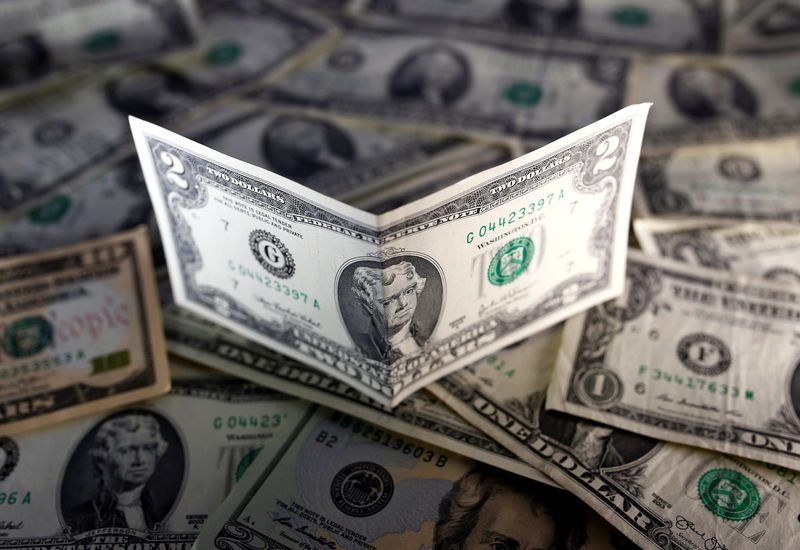By Kevin Buckland
TOKYO (Reuters) – The dollar held losses versus most major peers on Thursday as optimism that a massive U.S. stimulus package under the new Joe Biden administration will bolster growth sapped demand for safe-haven currencies.
Riskier commodity currencies remained higher after U.S. stocks rose to new records overnight as Biden, who has laid out plans for a $1.9 trillion pandemic relief package, was sworn in as President.
The dollar tumbled to a three-year low against its Canadian counterpart on Wednesday after the Bank of Canada opted not to cut interest rates.
“Risk sentiment is quite positive right now and we expect it to remain so this year, with growth expected to rebound quite strongly,” said Shinichiro Kadota, senior currency strategist at Barclays (LON:BARC) Capital in Tokyo.
The Canadian dollar and Norwegian crown are likely to outperform, while European currencies lag, he said.
The greenback should also strengthen this year as the United States recovers faster than most other countries, he added.
The U.S. currency slipped 0.1% to C$1.2623 in early Asian trading, declining for a third day and touching a three-year low at C$1.2607 overnight.
The dollar slid 0.2% to 8.48 Norwegian crowns, also a third day of declines.
The Aussie dollar rose 0.1% to 77.505 U.S. cents, adding to a 0.7% rally in the previous session. Australia boasted another solid rise in employment in December, data released Thursday showed.
Biden was sworn in as the 46th president of the United States on Wednesday, vowing to end the “uncivil war” in a deeply divided country reeling from a battered economy and a raging coronavirus pandemic that has killed more than 400,000 Americans.
North of the border, the Bank of Canada said Wednesday that the arrival of a COVID-19 vaccine and stronger foreign demand is brightening the economic outlook in the medium term, opting to hold its key overnight interest rate at 0.25%. Money markets had been watching the prospect of a so-called micro rate cut of less than 25 basis points.
The Japanese and European central banks decide on policy Thursday, with no change expected.
The dollar was mostly flat at 103.59 yen on Thursday, another safe haven currency, after sliding to a two-week low of 103.45 overnight.
The euro gained 0.2%, reversing a similar decline from the previous session, to trade at $1.21245.
European countries are struggling to contain the novel coronavirus amid worries that a new variant could lead to more stringent lockdowns and more economic pain.
The dollar index slipped 0.1% to 90.335, after closing almost unchanged on Wednesday.



